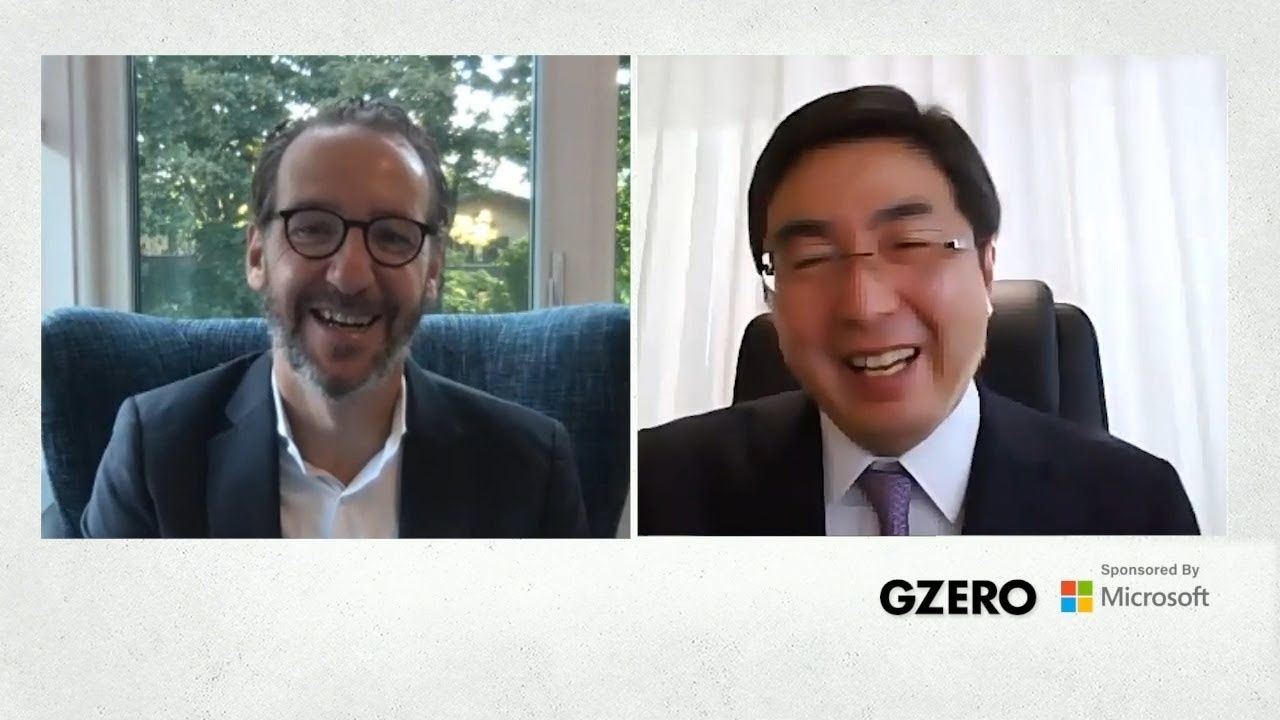
Japan’s UN Ambassador on China: “We Cannot Completely Decouple” | GZERO Media
GZERO Media caught up with Japan's Permanent Representative to the UN Kimihiro Ishikane during the 2020 UN General Assembly. In an interview with Eurasia Group Vice Chairman Gerald Butts, Ishikane talked about pandemic response, and how it has impacted the broader picture of US-China relations. Regarding a global fissure potentially caused by the world's two biggest economies, Ishikane said: "China is not like the former Soviet Union. Our system is completely intertwined, and I don't think we can completely decouple our economy and neither is that desirable." He also discussed the legacy of Shinzo Abe, Japan's longest-serving prime minister, who stepped down recently due to health complications.